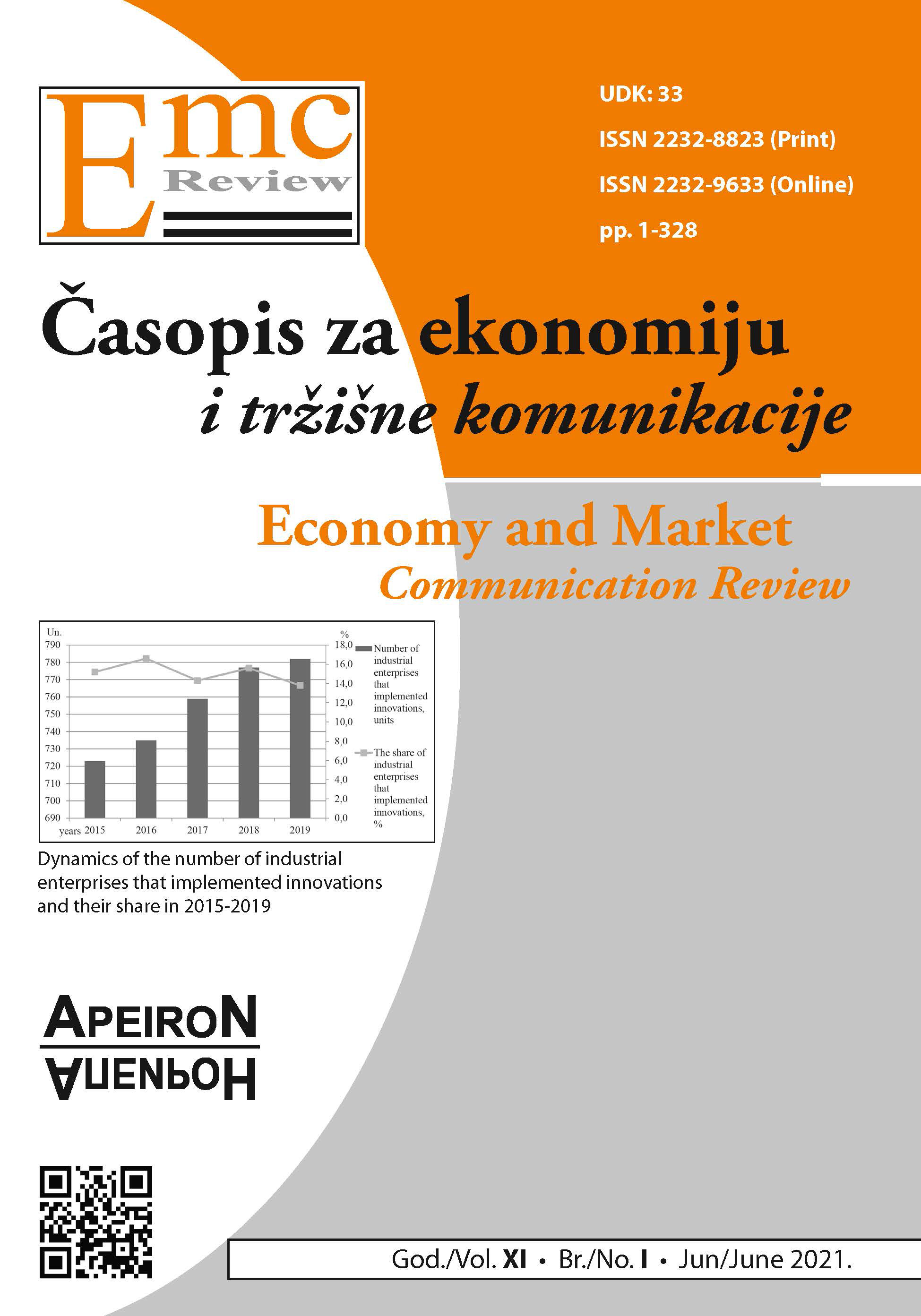ECONOMIC RESPONSE OF THE EUROPEAN COUNTRIES TO THE FIRST WAVE OF COVID-19
DOI:
https://doi.org/10.7251/EMC2101063EAbstract
COVID-19 pandemic has caused the deepest crisis since the World War II. Many countries have slid into recession due to continuous GDP fall. Lockdown has an impact on unemployment growth, while the provision of health systems and state aid to vulnerable sectors and population are deepening fiscal deficits. Based on the example of 31 European countries (27 EU members and several countries with which the Union has different agreements), this research determines impact of key economic and social variables in period of the First wave of COVID-19 pandemic on the “Economic stimulus”, which is represented by composite index CESI. It is about a combination of variables: Democracy Index, Stringency Index, Final Consumption, Gross Investment, Health Expenditure, and Hospital Beds per Thousand People. Using the median method, the total sample has been divided into two groups, the one with less and the one with more infected people. The results of cross section regression analysis show that 52% variations in the Economic stimulus in the total sample is determined by predictor variables in the model. Analysis for the countries with less infected people shows that more than 75% variations in the Economic stimulus is determined by joint trends of the predictor variables, while the Analysis with more infected cases shows coefficient of determination (R2) over 71%. In general, the results of econometric analysis unambiguously show that democracy contributes to the economic policy response to pandemic in all three observed cases. Stringency index contributes to democracy in an inversely proportional sense, especially in the case of countries with larger number of infected persons. The same could be said for the variable Final Consumption in the case of the total sample of countries, where markedly reduced final consumption requires stronger economic reaction and the governmental aid of all the countries included in the sample.
